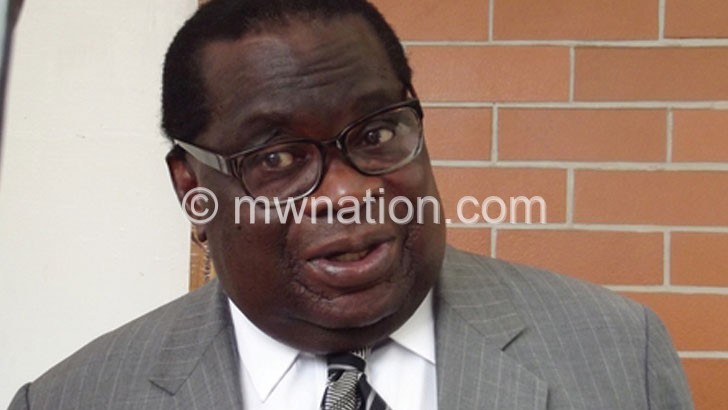Govt not automatic employer for teachers, health workers
Minister of Finance, Economic Planning and Development Goodall Gondwe has today told Parliament that government is not an automatic employer for teachers and health workers trained in its various institutions nationwide.
Winding up debate on the Mid-term Budget Review Statement yesterday which he presented to the House on February 26, Gondwe said he had noted that many parliamentarians had the general impression that it was Lilongwe’s responsibility to train all health workers and teachers it trains.

He described the impression as a misnomer, saying it had the potential of creating undue expectations among all government sponsored students.
Said Gondwe:”Indeed there is no reason why students being trained by government in other fields should also not demand a similar treatment. We need to start separating the role of government in providing and subsidising education for the nation and its ability to employ them.
“The latter is clearly based on the availability of resources and existence of vacancies in the service,” he said.
Gondwe’s position comes barely weeks after government said it would recruit 10 000 teachers, out of the 19 400 qualified primary teachers.
It also comes months after Capital Hill recruited nurses and newly graduated doctors for deployment to public health facilities nationwide.
Both the teachers and health workers stayed for a long time without employment and some health workers resorted to trekking to other countries seeking employment.
Gondwe said government has already scaled down recruitment of staff in the civil service during the 2015/2016 financial year.
“Government has already broadly suspended recruitment in the civil service except for the social sectors and other areas in critical need of employment. This is meant to prudently manage the growth of the civil service and wage bill. Resources are available in the current budget for the recruitment of teachers, nurses and doctors,” he added.
On the purchase of maize, Gondwe confirmed the reduction in budgetary provision from K15 billion (about $20.5million) to K8billion (about $10.9million).
He said the reduction has come about due to an anomaly in the classification of resources made available to government under Malawi Flood Recovery Project financed by the World Bank.
“I wish to clarify that the K15 billion was earmarked for maize purchases and other activities under the project.
The remaining resources have been properly assigned to their intended activities. I want to assure the House that Admarc has been provided with enough resources to procure maize to all the markets.
“And government has provided additional resources to National Food Reserve Agency [NFRA] to purchase maize for distribution to vulnerable households,” explained Gondwe.
In 2013, donors stopped direct budget support to Malawi after the exposure of looting of national coffers, dubbed Cashgate, by civil servants and businesspersons.
A British audit firm Baker Tilly hired by government to conduct a forensic financial expenditure check revealed that K24 billion (about $32.8million) was looted from government within six months between April and September 2013.
But a PricewaterhouseCoopers (PWC) data analysis report released last year showed a deeper problem going back years after it discovered that at least K577 billion may have been stolen from government in the five years leading to December 2014.
Government has since been implementing measures to seal the loopholes in the Integrated Financial Management System (Ifmis), whose ease to manipulate is largely blamed for Cashgate.
But donors remain unconvinced by the steps taken and have been channelling support through other means such as non-governmental organisations, projects and dedicated grants that cuts out direct government control.





